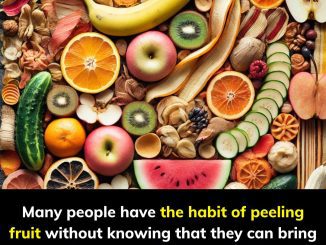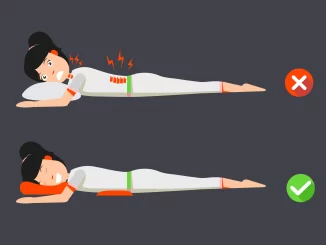At 27, Marly Garnreiter never expected a late-night chat with an AI to change her life. She was dealing with persistent night sweats and itchy skin—annoying, but easy to chalk up to stress. Doctors agreed, running routine tests and finding nothing unusual. But when she asked ChatGPT about her symptoms, it flagged something chilling: a possible blood cancer.
Marly brushed it off. So did her friends. After all, it was just AI—how could it possibly know better than her doctors?
But almost a year later, as her symptoms worsened and new ones emerged, she received a shocking diagnosis: Hodgkin lymphoma. Just as ChatGPT had predicted.
The AI That Raised a Red Flag Before Anyone Else

Marly’s symptoms started subtly in early 2024, just months after losing her father to colon cancer. Her doctors attributed the night sweats and itching to grief, stress, or hormonal shifts. Blood work came back normal, so there seemed to be no reason for alarm.
Curious, Marly turned to ChatGPT and listed her symptoms. The AI flagged a potential concern for blood cancer, specifically Hodgkin lymphoma. Still grieving and trusting her care team, she dismissed the idea and moved on.
But by late 2024, she began experiencing chest pain and deep fatigue. A CT scan revealed a mass in her chest, and a biopsy confirmed what ChatGPT had warned about: Hodgkin lymphoma.
Sneaky Signs of Hodgkin Lymphoma You Shouldn’t Ignore
Hodgkin lymphoma often presents with vague, non-specific symptoms that are easy to dismiss as stress or minor illness. That’s what makes it so dangerous in the early stages.
Here are some symptoms that could point to this type of cancer:
- Recurring night sweats (often drenching and disruptive)
- Unexplained weight loss
- Constant fatigue that doesn’t improve with rest
- Itchy skin with no clear cause
- Swollen lymph nodes, especially in the neck or underarms
- Fever with no obvious infection
- Chest discomfort or pain
Marly’s only early symptoms were itchy skin and night sweats—things that can be mistaken for allergies or hormonal changes. That’s why her story is such a wake-up call.
Video : ChatGPT diagnosed a woman with blod cancer before her doctors
“Your Body Knows Before the Bloodwork Does”
Marly’s message to others is simple: trust your body.
“Even when tests are normal, if something feels off—follow that instinct,” she said. “You know your body better than anyone.”
This advice is especially important when symptoms linger or evolve over time. Routine tests aren’t perfect. They may miss early-stage issues or fail to detect problems that are just beginning to develop.
Can ChatGPT or AI Really Help Spot Health Issues?
AI models like ChatGPT analyze enormous amounts of medical data. While they aren’t doctors and shouldn’t be treated as such, they can help spot trends and correlations that humans might overlook.
When Marly input her symptoms, ChatGPT didn’t diagnose her—it just flagged potential risks based on common patterns in similar cases. That kind of heads-up can encourage people to push for more in-depth testing, especially when standard tests come back clean.
Doctors are trained to look for patterns too, but human judgment can be influenced by other factors—bias, workload, or a tendency to assume the least serious cause. AI isn’t perfect, but it offers a new layer of analysis that can support better outcomes.
10 Ways to Use AI and Instinct to Protect Your Health

Want to become your own best health advocate? Here’s how to combine common sense with technology:
- Track symptoms regularly. Write down what you’re experiencing, when it happens, and how intense it feels.
- Use AI like ChatGPT to get an informed second perspective. Don’t treat it as gospel, but use it as a conversation starter with your doctor.
- Bring your notes to appointments. Doctors appreciate patients who come prepared with details.
- Request full copies of your medical records and test results. Keep a file—digital or physical—for reference.
- Research wisely. Use trusted medical sites like Mayo Clinic, NHS, or the NIH.
- Learn basic health vocabulary. Understanding terms like “inflammation” or “biopsy” helps you follow conversations and ask better questions.
- Bring a friend to your appointment. They can listen, take notes, and help advocate for you.
- Eat foods that support your immune system. Think leafy greens, lean protein, probiotics, and vitamin-rich fruits.
- Use gut-brain tools like MindBiotic to support mood, immunity, and inflammation naturally.
- Always get a second opinion when symptoms persist. Don’t let one “normal” test shut the door.
AI Isn’t a Doctor—But It Might Be the Prompt You Need
No one’s saying you should swap your doctor for a chatbot. But in Marly’s case, AI was the only one who took her symptoms seriously from the start. It didn’t replace her doctor—it helped push her toward asking better questions, and eventually, toward getting the tests that saved her life.
Video : Can Chat GPT Diagnose my Patient?
Her story is a reminder that early detection starts with awareness. Whether it’s from a doctor, a chatbot, or your own gut feeling—when something doesn’t feel right, you have the right to keep asking questions.
Conclusion: Trust Tech, Trust Yourself, Ask More Questions
Marly’s journey is a testament to the power of combining AI tools, medical care, and personal intuition. No test is perfect. No algorithm is infallible. But when all three work together—human instinct, medical expertise, and artificial intelligence—you create a powerful shield against being overlooked.
The next time your body whispers, don’t ignore it. Whether it’s a chatbot or your own inner voice raising concern, follow up. Follow through. And don’t wait.


